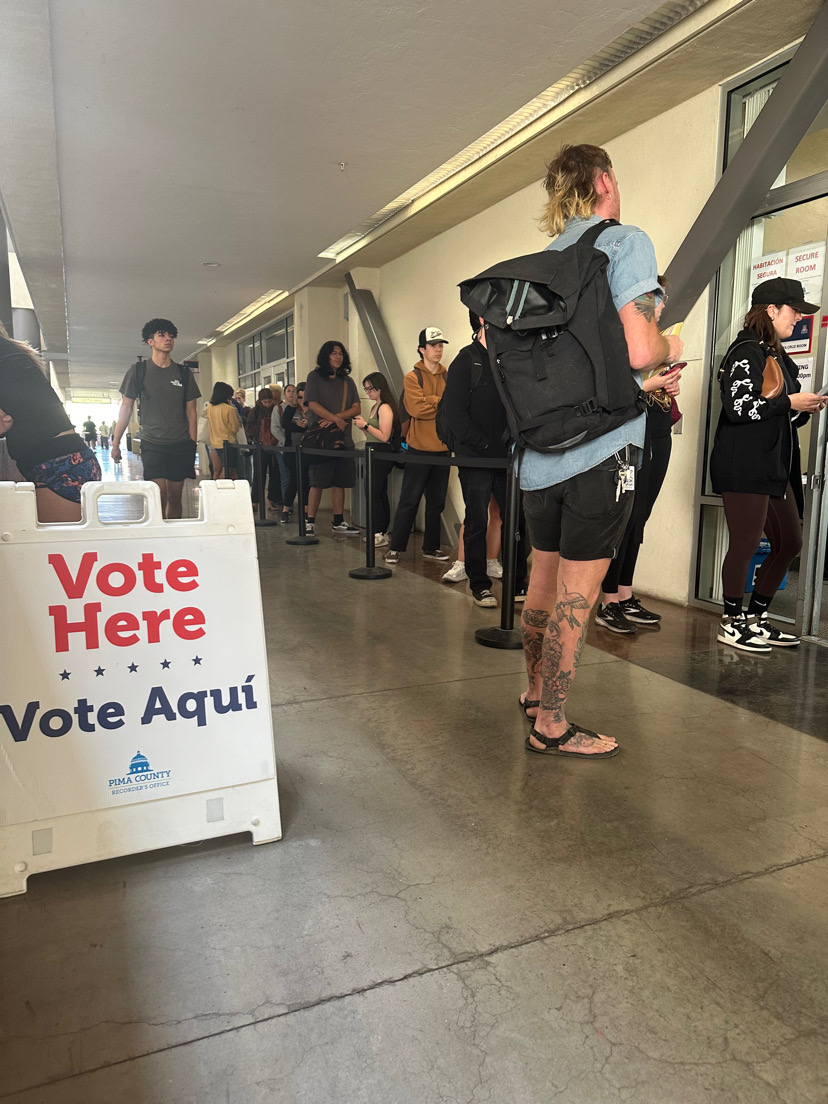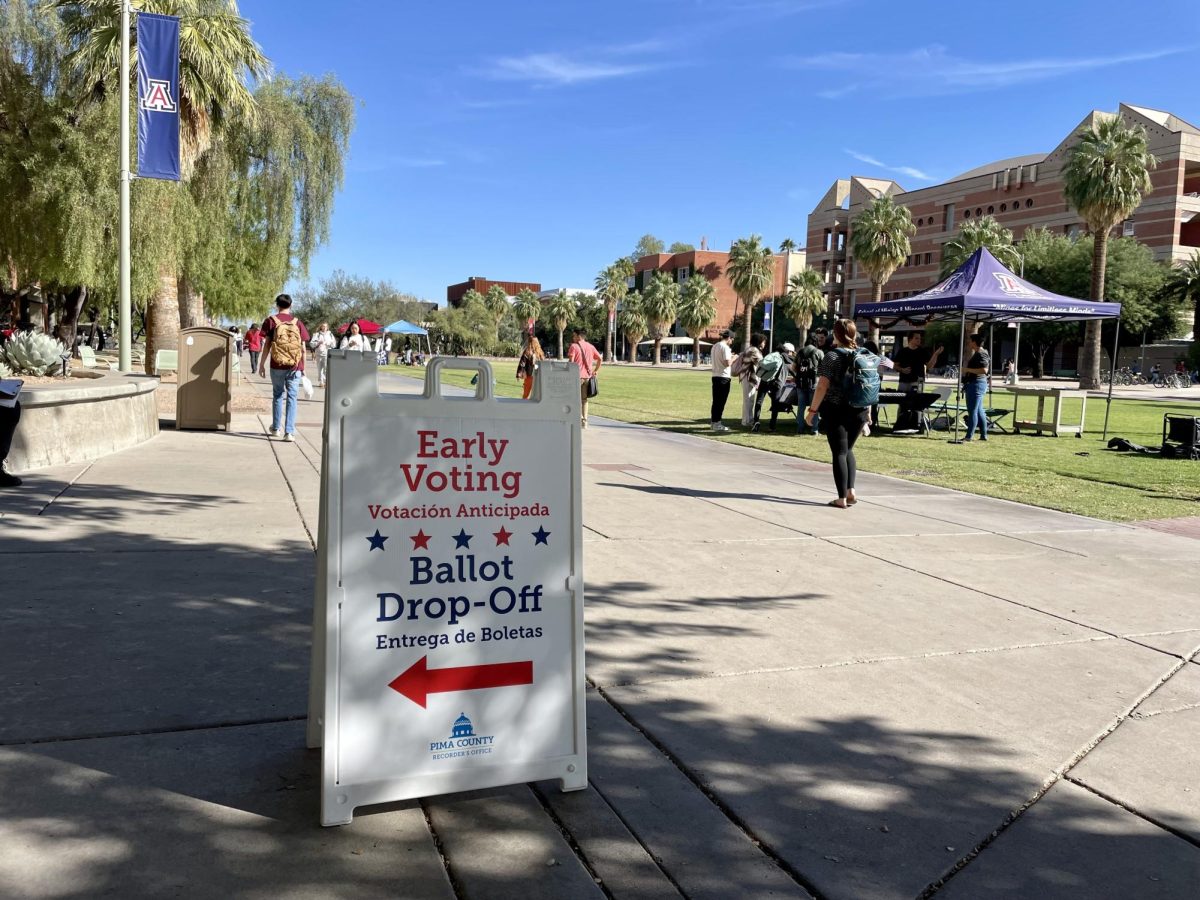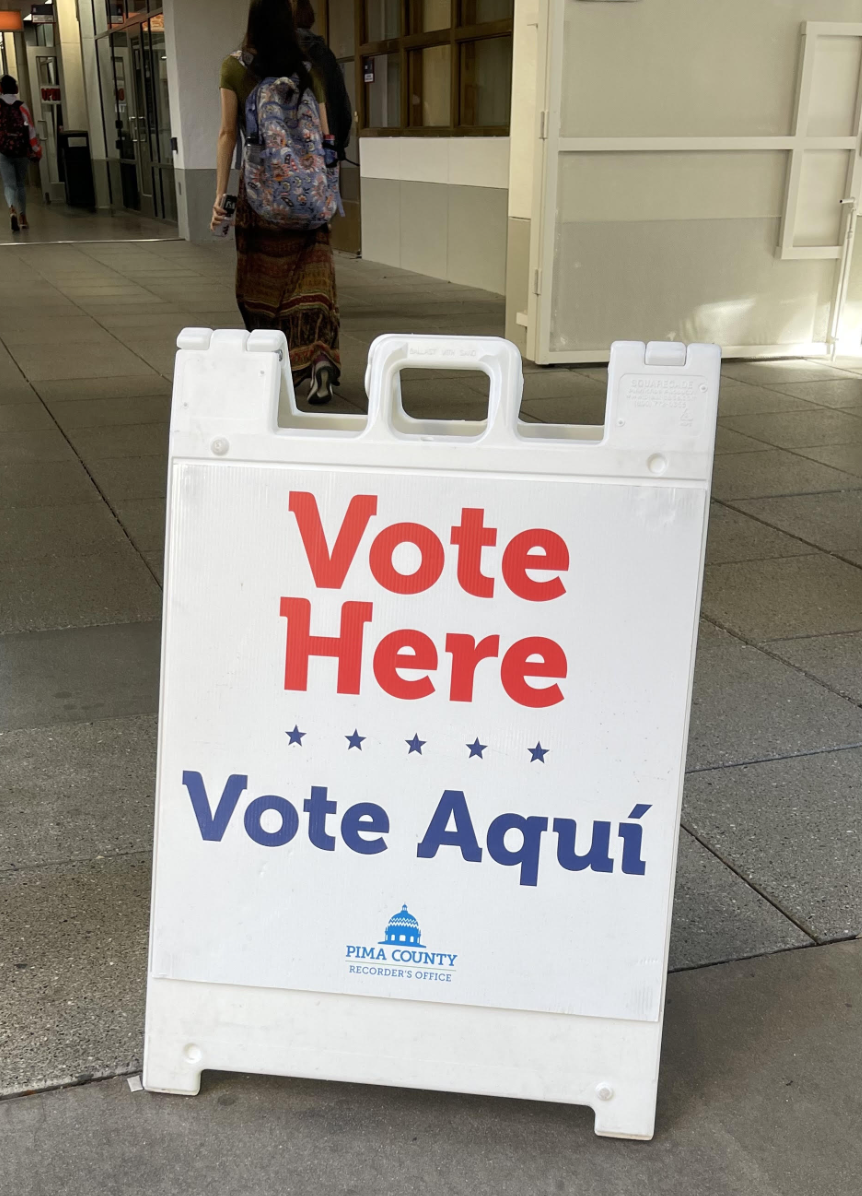Two top Arizona Senate Democrats have filed an ethics complaint against Senate President Warren Petersen and President Pro Tem T.J. Shope for violating procedures by shutting down Democrats’ attempts last week to repeal the 1864 abortion ban.
The complaint addresses an occurrence on the Senate floor on April 10, where Democrats claim Shope failed to recognize Sen. Anna Hernandez and Senate Minority Leader Mitzi Epstien after both had made proper attempts to speak. Rather than recognizing the several motions made by the Democratic senators, the body instead adjourned.
“Senator Anna Hernandez rose to make a motion, and was not recognized. As soon as the majority leader made the motion to adjourn, I called for a substitute motion. Both of those are in order and should have been recognized. Instead, I think our mics were off,” Epstein recalled at an April 15 press conference.
Hernandez had planned to move an amendment to House Bill 2241 that would have repealed the 1864 near-total ban on abortion that, just the day before, the Arizona Supreme Court had ruled was enforceable. Other Senate Democrats had prepared speeches to go along with their votes.
“You heard me say, ‘Mr. President Pro Tem, you know we want to speak,’ and what did they do? They turned around and left,” she said. “Senate President Pro Tem (Shope) broke the rules under the direction of the Senate president…and we want to acknowledge that.”
The complaint
The six-page ethics complaint filed by Epstein and Sen. Lela Alston claims that Shope and Petersen violated the Senate rules, as well as rules established by the Mason’s Manual, which governs parliamentary procedure and which most legislatures abide by. The following describes the alleged violations made by Shope under the guidance and consultation of Petersen:
- Majority Leader Sonny Borrelli first made a motion to adjourn until April 17, and then made a motion for the previous question — which puts an end to all debate and goes straight to a vote on the matter. Senate rules say that these motions have to be moved and adopted in order to stop debate. Democrats claim Shope acknowledged the motion, but the full Senate did not get to vote on it, so the motion was not adopted by the Senate — meaning Shope violated Senate rules by ending debate in order to adjourn.
- Prior to Borelli’s motions, Hernandez had pressed the “Request to Speak” button on her desk and had been waiting for “a period of more than five minutes” to be recognized by Shope in order to make her own motion. After Borelli made his motions, Hernandez called a point of order to try and get recognized by Shope. By failing to recognize her, Shope allegedly violated Senate rules on decorum and debate, as well as the Mason’s Manual, which states that it is the duty of the presiding officer to immediately acknowledge any points of order.
- After Hernandez was ignored, Epstein rose to make a substitute motion to Borelli’s earlier motion for a previous question. Since Borelli’s motion still had not been voted on, Epstein’s motion was in order and should have been considered by Shope. Instead, she was also ignored.
- When Shope went to move forward with the motion made by Borrelli, Hernandez was still standing, and she repeated her point of order. While this could have been another chance for Shope to recognize her, Democrats claim she was instead “intentionally and knowingly overlooked.”
- After both Epstein and Hernandez were ignored, and Shope had moved forward with a voice vote on Borrelli’s motions to end the Senate’s work, Democrats called for division, a procedural safeguard that requires the chair to count the sides to verify a voice vote. Division must be called before the chair proclaims the result of the vote. Democrats claim that several senators, including Epstein, called for division before the vote was announced, but were ignored by Shope, who violated Senate rules and the Mason’s Manual by doing so.
“Mason’s rules, which are the rules that govern legislatures, are there to protect and uplift the voices of all who are representing the people of Arizona. Every legislator has an equal voice under Mason’s rules, and under our Senate rules. Therefore, not recognizing those who rise… is a terrible breach of the rules,” Epstein said at the press conference.
What’s next?
Epstein said that she hopes the formal complaint will compel her Republican colleagues to take accountability for their actions on the floor, and prevent them from veering away from procedural standards as Democrats continue their attempts to repeal the abortion ban.
“The important thing is, number one, our majority Republican leadership recognizes and acknowledges they made a mistake, they broke the rules, and they disrespected the people of Arizona…” Epstein said. “Number two, because we are coming back on Wednesday, do not do it again.”
Shope in a written statement denied all claims of misconduct and called the complaint “bogus,” saying it is no more than a “desperate publicity stunt to score cheap campaign points with their radical Left base.”
“Shame on Arizona Senate Democrats for stooping so low in their desperate attempt to weaponize the Legislature’s policies on ethics investigations,” said Shope. “Neither I, nor President Petersen, who wasn’t even present in his chair at the time of the alleged offense, engaged in any sort of ethical violation by any stretch of the imagination.”
When asked about what sort of penalties she hopes to see come out of this, Epstein said that she only hopes to prevent further violations of the rules as Democrats continue to push for a repeal of the ban that originates from an era where women were unable to vote or hold elected office
“The most disappointing outcome from this floor session was the blatant failure of the Senate President and the President Pro Tempore to recognize the words of two elected female members of the Senate on the day after the Supreme Court of Arizona upheld a law criminalizing abortion, a medical procedure used exclusively by women,” Democrats wrote in the complaint.
At Monday’s press conference, Alston said that she remembers the days before Roe v. Wade, when the 1864 abortion ban was being enforced, and the drastic measures it forced people to take in order to receive health care.
“I remember times when women or girls went away to ‘visit an aunt or grandmother’ out of state, and they never came back the same — and in some cases, they never came back,” Alston said. “There were back alley abortions, and if this law stands, they will return.”
This story first appeared in AZ Mirror.











